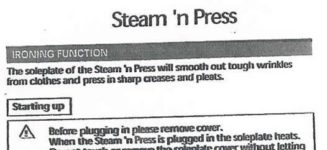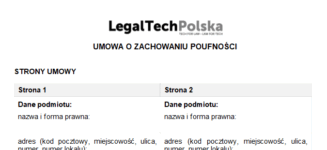When someone asks us to write a formal application I bet the vast majority of those applications start with the phrase “I kindly request…” or “I am writing to formally request…”.
Why is that? Because that’s how we were once taught, and it’s such a ready-made formula that makes it easier to focus on the content of the application without having to think about what words to use in the introduction.
There are many such ready-made formulas in legal and official language. They have been developed by successive generations of lawyers and civil servants. We use them most of the time without thinking about their meaning.
In particular, we use a lot of such language formulae when we draft contracts. The language of contracts is largely made up of ready-made formulas which are used as a blueprint for the construction of subsequent contractual provisions, which are filled in with specific content agreed by the parties.
Examples include phrases such as “the parties have agreed that…” or “the contractor declares that…”. They do not in themselves contain any substantive content, but only serve as a framework for the placement of other content that is already substantive in nature.
Some of these phrases are harmless, but there are others that cause unnecessary confusion. Today I will discuss the popular phrase “for the avoidance of doubt”. Sometimes it is also used as “for the sake of clarity” – which has exactly the same meaning.
What does “for the avoidance of doubt” mean?
If we look without prejudice at a provision that begins with the words “for the avoidance of doubt”, our first conclusion should be that the previous provision is obviously not clear enough, and therefore it is necessary to clarify and make it clearer in the next provision, using different words.
But if this provision is indeed not clear, wouldn’t it be better just to rewrite this previous provision so that it is clear and we don’t have to add a sentence beginning with “for the avoidance of doubt”?
“For the avoidance of doubt” usually means nothing
I have checked a dozen contracts where this phrase has appeared. In the vast majority, it had no legal meaning whatsoever. Nor was it really used to remove any doubt. Its only purpose was to rhetorically emphasise the importance of an obligation that was important to one of the parties.
Sometimes the phrase “for the avoidance of doubt” was used to introduce a principle which did not need to be stated in the contract (for example, because it was derived from existing statutory law) but which one party wanted to include in the contract for its own convenience.
Some examples
Example one
“For the avoidance of doubt, the parties agree that the purchaser shall be entitled, but not obliged, to exercise the option”.
Exercising an option is unlikely to ever be an obligation, but if we are going to write it down, why not make it shorter?
The purchaser is not obliged to exercise the option.
Example two
“For the avoidance of doubt, the supplier confirms that it will correct any defects in the software”.
Am I the only one who sees that the sentence in question can be deleted here without any loss of meaning?
“The supplier confirms that it will correct any defects in the software”.
Example three
“For the avoidance of doubt, the parties agree that at the same time as the licence is granted by the contractor, the customer shall acquire ownership of all copies and media on which the works have been fixed”.
Same situation as above. Neither the avoidance of doubt nor a collective agreement by the parties is required.
“At the same time as the licence is granted by the contractor, the customer shall acquire ownership of all copies and media on which the works have been fixed”.
Example four
“For the avoidance of doubt, as soon as the contracting authority makes use of substitute performance, all other remedies arising from the contractor’s failure to remedy a defect in the contract work shall cease”.
I think everyone can see that this “For the avoidance of doubt” can be deleted:
“As soon as the contracting authority makes use of substitute performance, all other remedies arising from the contractor’s failure to remedy a defect in the contract work shall cease.”
Example five
“All amendments to the contract must be in writing to be valid. For the avoidance of doubt, the parties confirm that an amendment to the Contract may also be made in electronic form with a qualified signature in accordance with Article 78(1) of the Civil Code”.
Again, the wording in question can be deleted.
“All amendments to the contract must be in writing to be valid. Amendments to the contract may also be made in electronic form with a qualified signature, in accordance with Article 78(1) of the Civil Code”.
Or – better – shorten the whole provision:
“Amendment to the contract must be in writing or in electronic form, i.e. in electronic form with a qualified signature, in order to be valid.”
Or even better:
“Amendment to the contract shall be in writing or in electronic form”.
The use of the phrase “for the avoidance of doubt” only complicates the situation.
It seems to me that lawyers have become so used to this phrase that they use it automatically without thinking about its true meaning. Meanwhile, its careless use can lead to difficulties in understanding the contract. After all, if the phrase “for the avoidance of doubt” is followed by a provision that contradicts the previous provision, how is it to be understood – whether as an amendment to the previous provision or as a separate and special provision?
The origin of “for the avoidance of doubt”
The phrase “for the avoidance of doubt” undoubtedly derives from common law practice, where the phrase “for the avoidance of doubt” is also widely used in contracts, although this practice is heavily criticised.
Conclusion
I encourage you to take a critical look at the phrases routinely used in contracts and consider whether they are necessary. And if they are not – it is worth simply removing them.
If a clause is really likely to raise doubts, let’s change it so that it doesn’t. And if the wording is a way of emphasising the importance of a principle, let’s see if there isn’t another way of achieving it.
It’s worth avoiding verbal fillers in contracts – let’s delete all the words that don’t add anything, but only increase the volume of the contract and hinder its efficient analysis. And if they can also cause problems in understanding the terms of the contract, all the more reason not to use them.
Yes – I know that those X-used words like “hereinafter” have little relevance to the substantive content of the agreement. But I also know that if someone doesn’t want to stop using such phrases, they won’t want to stop using “for the avoidance of doubt” and many other empty phrases that sometimes make the contract so messy that it’s hard to find the intended meaning.
There is another important argument for stopping the habitual use of language clichés. In the era of the development of artificial intelligence systems, especially generative AI, it is relatively easy to apply such systems to all repetitive and schematic tasks. The more schematic language we use in contracts, the easier it is for AI systems to produce a document similar to the one we are currently producing in person. Only by moving away from the usual patterns, including language, and tailoring the language, content and form of the contract to the real needs arising from the context, can we all secure jobs in the future.
I look forward to hearing your feedback.




 Czy analiza sentymentu przy pomocy systemu AI to praktyka zakazana?
Czy analiza sentymentu przy pomocy systemu AI to praktyka zakazana?